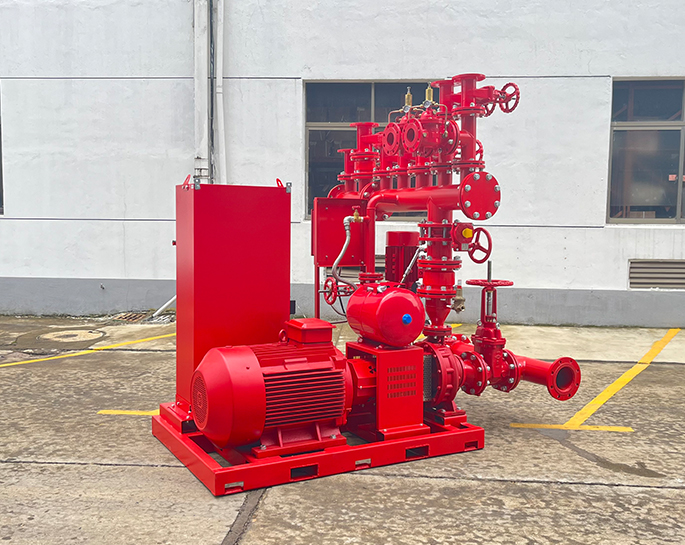What happens if the fire pump doesn’t start during a fire?
Sep 12, 2024
Share:
If a fire pump doesn’t start during a fire, it can lead to severe consequences, as the pump is critical to ensuring that water is supplied with enough pressure to the fire protection systems (sprinklers, hydrants, etc.). Here are the key risks and effects:
1. **Inadequate Water Pressure**: Without the fire pump, the water supply may not have sufficient pressure to effectively combat the fire, especially in high-rise buildings or areas far from the main water supply.
2. **Delayed Fire Suppression**: Fire sprinklers and hoses may deliver less water, leading to delays in extinguishing the fire. This allows the fire to grow, causing more damage and putting lives at risk.
3. **System Failure**: Fire pumps are often part of a building’s entire fire protection system. If the pump doesn’t start, the entire system could be compromised, leading to a complete failure in fire suppression.
4. **Increased Risk to Life**: The failure of a fire pump increases the likelihood of fire spreading, endangering occupants, firefighters, and property.
5. **Code Violations and Legal Consequences**: Fire pumps are mandated by building and fire codes. If a pump fails to operate, it could lead to violations, fines, or even legal action.
To avoid these issues, regular maintenance, inspections, and testing are crucial for ensuring fire pump reliability in emergencies.

1. **Inadequate Water Pressure**: Without the fire pump, the water supply may not have sufficient pressure to effectively combat the fire, especially in high-rise buildings or areas far from the main water supply.
2. **Delayed Fire Suppression**: Fire sprinklers and hoses may deliver less water, leading to delays in extinguishing the fire. This allows the fire to grow, causing more damage and putting lives at risk.
3. **System Failure**: Fire pumps are often part of a building’s entire fire protection system. If the pump doesn’t start, the entire system could be compromised, leading to a complete failure in fire suppression.
4. **Increased Risk to Life**: The failure of a fire pump increases the likelihood of fire spreading, endangering occupants, firefighters, and property.
5. **Code Violations and Legal Consequences**: Fire pumps are mandated by building and fire codes. If a pump fails to operate, it could lead to violations, fines, or even legal action.
To avoid these issues, regular maintenance, inspections, and testing are crucial for ensuring fire pump reliability in emergencies.


.png)
.png)

.png)


